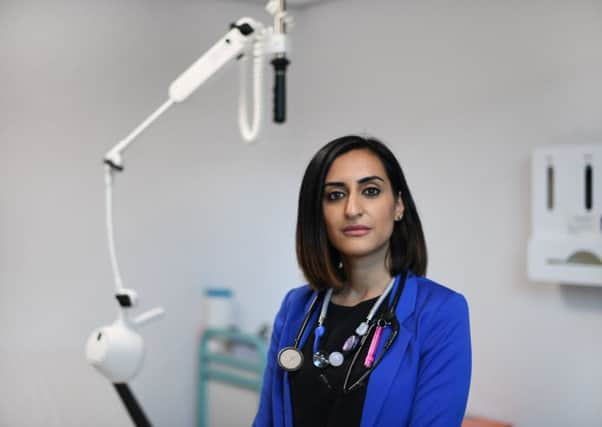Dr Punam Krishan: How anyone can help the doctor recruitment crisis


I was delighted to see the huge amount of discussion my article generated, especially online. I was really touched by some of the heartfelt comments. However, full disclosure, I was deeply saddened by the volume of misogynistic and racist comments. This isn’t about me, it is about all of us. My only goal here is to prevent doctors from burning out. This has nothing to do with their colour, creed or gender. That said, we’ve started the conversation and that has to be a good thing for our country’s healthcare system. I won’t give up and would always encourage others to fight vociferously for what they believe in. My story is one among millions, the difference being they don’t often get shared in the news. What the media does tell us is there is a huge recruitment crisis in the NHS with doctors going abroad or quitting.Surely we medical professionals must ask the question “why?”
Were we all naive when we decided to study medicine? Did we really not know what was involved? The simple answer is no, but let me explain a bit more.
Advertisement
Hide AdAdvertisement
Hide AdThe aspiration to become a doctor typically starts at an early age. Kids wishing to “grow up to be a doctor” often share a genuine desire to help people. We see family doctors, their TV versions and learn about them at school. We form opinions on what the role of a doctor entails and want to be just that, public servants. We don’t learn at this stage that doctors have little autonomy over their working life and will eternally struggle to meet the endless demands of management, changing contracts, new government policies and lack of funding.
I worry kids today won’t get to see the joys of being a doctor – of which there are many – because they hear just doom and gloom. Ask anyone you know and they’ll have an NHS story. The ones we remember are often negative. The path to becoming a doctor starts almost a decade before university as kids strive to get straight As and bulk up their CVs. For every one place at medical school there are three students interviewed.
Studying for a medical degree costs a lot of money and many of us work alongside our gruelling hours of study. We rely on student loans for six years, leaving us with a huge debt upon qualifying. And the studying actually intensifies after graduation as we start specialising in our chosen fields. This requires regular assessments, exams, interviews and extra-curricular activities all while working up to 80 hours a week. Specialty training takes anywhere between four and seven years depending on your chosen field.
This can affect our personal lives because we also want to buy homes, settle down, have families and have fun. However a healthy work/life balance is often an impossibility.
After almost 20 years of blood, sweat and tears, I am proud to be a GP. I haven’t quit being a GP, I’ve quit being a partner in a practice. I am a full-time, hardworking and ambitious Scottish Indian mother who became a doctor to help her community live and feel better and help them on their health journeys. I also want to have autonomy over my work and personal life in a dignified fashion. Is that too much to ask?
One minute we could be breaking the news to someone that they have terminal cancer and, in the next consultation, celebrating a long-sought-after pregnancy. We must be constantly switched on: mentally, physically and emotionally. A single mistake could cost a life and there is no margin for error, ever.
There’s no simple solution, but I have hope things can change for the better. The first step must come from patients. Value your GP. Give them the recognition they deserve, respect and love them, they work really hard for you and, most of the time, are very happy to do so.